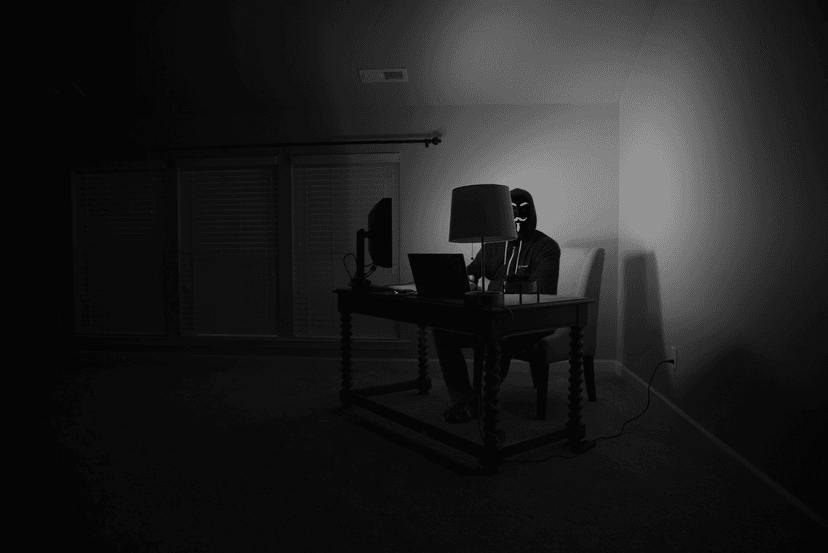How to Handle a CyberStalker

How to Handle a Cyberstalker: Avoid, Evade, and Report
The internet allows you to network with wonderful people across the globe while remaining anonymous. However, online anonymity also enables cyberstalkers to stalk and harass other internet users. Cyberstalkers, who know their victims in most cases, make them feel scared and unsafe even when they are not online.
Generally, cyberstalking is a criminal offense investigated by the Federal Bureau of Investigation (FBI). Unfortunately, these persons often operate freely without the fear of being caught, detected, or punished. Knowing how to handle cyberstalkers and report cases to the FBI will prevent you from suffering anxiety or depression caused by online harassment.
What is Cyberstalking?
Cyberstalking is the act of threatening or harassing another person online using the internet or other innovative technologies. Like traditional stalking, the purpose of the stalker is to control the victim and make them hypervigilant. However, the effects of cyberstalking are sometimes greater than in-person stalking due to the increasing rate of internet use. Cyberstalking victims respond more aggressively, lose more money to fraudsters and, over time, feel far more stress than victims of traditional stalking.
Cyberstalking is a type of cyberbullying, and is regarded by the FBI as an internet-related crime or a cybercrime. Even though it remains illegal, cyberstalking is common in the US. According to the US Bureau of Justice Statistics (BJS), more than 2.7 million citizens above 16 years reported a form of stalking with technology in 2019. Another report also shows that young women often experience cyberstalking more than men.
Cyberstalkers operate in different forms. Some perpetrators communicate directly with their victims through emails, unwanted phone calls, social media messaging platforms, and several other means. Other cyberstalkers use indirect methods to monitor and steal personal information from victims. For instance, a cyberstalker may attack a victim's phone with malware, which would lock their files until they pay a ransom. A cyberstalker could also put in a virus or keylogger that keeps track of the victim's online activities and takes information from the target device.
According to an FBI report, a common form of cyberstalking is sextortion, mostly experienced by children and young adults. Sextortion occurs when a victim is threatened with the disclosure of private or confidential details unless they comply with the stalker's requests for sexual obligations, nude images, etc.
Effects of Cyberstalking
Cyberstalking effects can be minimal, only resulting in the loss of some money. However, it can also be severe and cost victims their financial, emotional, and mental well-being. In some cases, victims may experience both online harassment and in-person stalking, especially if they have any affiliation with the cyberstalker. This type of experience usually has severe consequences, as according to the BJS report, 67% of victims who experience both traditional and online stalking were afraid of being killed or injured.
Sadly, victims of cyberstalking may not easily report the offense to local authorities due to their affiliation with the offender. However, there are some warning signs that reveal a person is being cyberstalked. Some of these signs include:
- Withdrawal from normal social activities, such as refusing to use a particular social media platform.
- Changes in attitude or behavior, including being more irritated and lonely.
- Avoiding specific locations or persons
- Suddenly losing interest in pastimes or pursuits that they formerly loved.
- Experiencing constant insomnia
- Using technology secretly. This may include trying to access phones and computers at odd times, or trying to hide their online activities.
- Sudden changes in grades or academic performance, especially if they were once high flyers but have started to decline.
- Strange physical concerns, such as headaches or stomach aches that don't appear to be related to any other illnesses
What Qualifies as Cyberstalking in the US
Although no specific law addresses cyberstalking, online stalkers may still be prosecuted under several related laws in the US. According to the FBI, cyberstalking is a crime under the Violence Against Women Act (VAWA) first introduced in 1994. The legislation was modified in 2013 to cover stalking conducted over the telephone or via the internet.
Title 18 US Code § 2261A(2) also states that it is against the law for anybody to use internet communication to participate in behavior that causes another person to reasonably believe they may die or suffer significant bodily injury. Another law that criminalizes cyberstalking is Section 223(a) of the Federal Communications Act, which makes it illegal to use the internet, phones, and other telecommunication tools to harass, abuse, threaten, or annoy others.
The Computer Fraud and Abuse Act criminalizes indirect cyberstalking where the stalker uses computer malware to gain private details without authorization. Some states in the US have different anti-stalking laws that prohibit using technological devices to threaten or harass residents. Cyberstalking carries a possible five-year jail sentence and a $250,000 penalty. If a victim dies due to cyberstalking, the offender may be jailed for life.
How to Avoid and Evade Cyberstalking
It is often difficult to prove a cyberstalking case since no specific law addresses it. As such, the first step you must take is to avoid being cyberstalked. Preventing cyberstalkers may involve using technology to serve as a deterrent and help to gather evidence required for legal action. For instance, a call-blocking software with multiple functions will not only stop unwanted callers but reveal all their details.
You can prevent online harassment by maintaining anonymity as much as you can. Rather than using real identities that are traceable online, set up your social accounts with aliases and gender-neutral names. Ensure that only your close associates know the aliases you use online. This way, you can easily detect the location and identity of the cyberstalker. Other methods to avoid cyberstalkers are:
- Download email filters to prevent spam and reduce the chance of cyberstalking attacks and email-based phishing.
- Update all computer programs to prevent data breaches
- Use a VPN (Virtual Private Network) to hide your IP (Internet Protocol) address.
- Modify privacy settings on all social networks, especially to protect private pictures.
- Use strong passwords or multifactor authentication to strengthen all devices.
- Try not to use public WiFi.
- Share sensitive details through private communications instead of posting on public platforms.
- Switch off your device's geolocation settings.
- Download antivirus software and update it regularly to identify malicious applications.
- Sign out of all accounts after use.
- Don't install applications that request access to your private data.
How to Report Cyberstalking
Once you have some evidence, you should not hesitate to report cyberstalkers. Reporting any form of online harassment will help other persons avoid being abused and bullied. The FBI and other law enforcement agencies can get more offenders to face the law if victims are not afraid to tell their stories.
As such, the first thing to do when you experience any signs of cyberstalking is to stop communicating with the perpetrator. Afterward, take the following steps:
- Contact the sheriff or nearest police department.
- Use call blocking applications to block the cyberstalker from your phone. There are also blocking features on all social networking platforms that allow you to prevent a person from communicating with you.
- Speak with trusted friends and families if you feel you are being monitored online.
- Record the dates, hours, parties involved, and details of the stalking incidents.
- Preserve and print snapshots from emails, texts, and other communication as proof.
- Report the incident and describe it with details to the FBI.
The FBI's Internet Crime Complaint Center (IC3) is designed for victims to report all types of cybercrimes. You should use the IC3 Complaint Referral Form to report cyberstalking and explain how it occurred. You can also report cases to the FBI by calling 1-800-CALL FBI (225-5324).
Due to the mental effects of cyberstalking, some victims require assistance from a mental health specialist. Such professionals can provide support and direction to help manage the trauma and assist with processing persistent thoughts. To get help, victims may use the Crime Victim Services provided by the Office for Victims of Crime.


